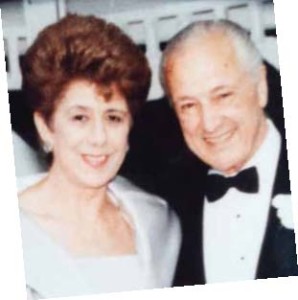A Plea for Change – Alzheimer’s, from a family member’s perspective
by Cristina Sciavolino-Day, MD
They say that although physicians learn from textbooks, they truly become more knowledgeable after they have experienced an illness as a patient or family member.
To live through the patient’s point of view as well as the physician’s view is not only enlightening, but as I have learned, it can be terribly frustrating. My family recently went through a very trying time and it has brought to light the many inadequacies and failures of our current
medical system when dealing with dementia and one of its worst forms, Alzheimer’s. Please allow me to share our story with you.
My hope is that it can bring to light the changes that need to occur as this disease takes more of our loved ones every year.
 My mother was a brilliant and hardworking physician who has made me so proud. Then in retirement in her 70s she was diagnosed with Alzheimer’s. She progressively showed signs of worsening memory since 2011. During this past year her condition quickly deteriorated to the point of not being able to answer any questions and had difficulty following any commands. She would yell out “Momma”, and was having more difficulty with walking.
My mother was a brilliant and hardworking physician who has made me so proud. Then in retirement in her 70s she was diagnosed with Alzheimer’s. She progressively showed signs of worsening memory since 2011. During this past year her condition quickly deteriorated to the point of not being able to answer any questions and had difficulty following any commands. She would yell out “Momma”, and was having more difficulty with walking.
It was a devastating moment when I realized the severity of her dementia. On that day she no longer realized who I was. When asked a question, she would just smile. I was absolutely crushed at that time. This was my mother, but her memory of me had been erased. I went to my car and just cried.
My father has been an absolute saint throughout her disease. He cared for her literally 24 hours a day. As a retired physician himself, he acted as her husband, nurse, shopper, chef, supporter and cheerleader. Whatever she needed physically and emotionally, he did it. However, it was realized this year as she reached end stage of Alzheimer’s that she could no longer stay at home. She physically required more help than we could provide.
Avow Hospice evaluated her but they determined she was not yet a candidate for Avow based on her condition at the time. Our family was then faced with the issue of Assisted Living Facilities vs Nursing Facilities. This is where the education began for our family.
Learning point number one: despite the fact that she was going to a facility because of a progressive medical condition, Medicare will not pay for any of these facilities. As a result it cost between $5000 to $7000 per month totally out of pocket unless the patient qualifies for Medicaid.
We quickly discovered another problem that seems all too common at these facilities; a lack of appropriate staffing. My mother was evaluated and deemed a candidate for an assisted living facility (ALF), but she required more one on one attention. As a result, my father hired an outside agency to have a companion stay with my mother eight hours a day seven days a week to ensure help during the daytime shift. As a result the cost went up to about $10,000 per month. How are most families and patients expected to be able to afford this? They can’t. At least not for any extended period of time.
Medicaid will not pay until you have exhausted all your finances, and if you are the spouse of an Alzheimer’s patient, now your money to live has been expended.
A third major problem seems to be that none of these facilities, at least here in Naples, have the ability to deal with end stage dementia patients. Twice we received a notice from two separate sites stating that she had 45 days to leave the facility. Their reason was that she required too much help for their ALF and needed to go to another site as her degree of dementia was beyond what they could handle.
This became what I define as a slow progressive death which was torture for my family to witness and I can only imagine what it was like for my mother. She was no longer walking or eating and was bedridden by that point. While at her third facility I went to visit and was astonished to discover multiple brand new severe bedsores that were open and not being cared for adequately in my opinion. Where was the care and attention she so desperately needed? I rarely yell but I found myself in an argument with the administrator and was shocked at how they defended their level of care as appropriate and acceptable. And yet again we received our second “eviction notice”.
By this time she was declared severely end stage in Alzheimer’s and deemed terminal; therefore, Hospice took over her care. Needless to say wound care was started and she was transferred to hospice house within the same 24 hours. Avow Hospice is a wonderful organization which helps those with terminal conditions.
Our family will always be grateful for their help. There is only one problem with Hospice in the State of Florida. They legally cannot facilitate death or cause death. They can only make those dying more comfortable during the process. Alzheimer’s though is different from terminal cancers or other life ending illnesses. With Alzheimer’s, the issue involves a complete loss in the quality of life.
Since our state has no law to allow a humane end to a patient’s life when there is obviously no quality of life remaining, an Alzheimer’s patient and their family are stuck in a most difficult position.
As you may already be aware, Alzheimer’s is a progressive neurological condition that usually afflicts those above age 65. Symptoms might start with difficulty remembering new information just learned, and as it progresses, confusion, disorientation, problems with walking, speech and swallowing occur. There is no diagnostic test for this so it is diagnosed by medical evaluation, memory testing and brain imaging with an MRI. Treatments available may offer a temporary slowing of the disease, but at this time there is no cure. Continuing brain stimulation exercises such as word finding puzzles, bingo and games are encouraged though.
When I am seeing a patient with dementia I attempt to have them answer my questions directly and not have a family member answer for them. This is the only way that I can really see how they are changing over time. What a family member tells me is important though as it paints a more thorough picture of what is going on at home. Sometimes family members get upset with me or insulted that I do this, but it really is important to try and have the patient speak. I also stop and take the time to ask the caretaker how they are doing and make sure that they are getting breaks for themselves.
Asking about support systems is important as well as I have realized how much stress this places on the spouses and families. If a patient of mine is the caretaker, I proactively advise them to consider seeing a counselor. If they show signs of stress they may need an outlet to help them deal with the hard road that lies ahead.
According to the National Institute of Health it is projected that the prevalence of Alzheimer’s will nearly quadruple in the next 50 years, by which time approximately 1 in 45 Americans will be afflicted with the disease. A local Alzheimer’s organization quoted something like one in every 33 people in Naples has Alzheimer’s.
The proposed costs are expected to double by 2040. How could the average person pay for ALF and nursing homes? How could they afford companions? To qualify for Medicaid personal financial assets need to be spent. My parents were fortunate to be able to afford this. Why aren’t these medical necessities covered by Medicare?
States other than Florida are addressing giving people with terminal diseases the choice of facilitating death. People need to consider this for humane reasons. Take my mother’s case for example. She was no longer eating, talking, walking and her body was physically breaking down. Hospice could do nothing until she showed signs of discomfort. My father, my sister and I had to sit and watch my mother slowly die. It took eight days. Eight long days. Towards the end, Hospice thankfully started to administer morphine when she was showing signs of respiratory failure and pain. Somehow, my mother took her last breath when we were all with her. It was as if she knew.
Some additional facts per Alzheimers.org: Alzheimer’s afflicts about five million Americans. Two-thirds involved are women. Every 67 seconds someone develops Alzheimer’s. It is the 6th leading cause of death in America. We need to do something more. Will you step up if we can get these issues to our representatives? I am asking you to think about these issues and tell others about them.
If this article can spark interest and action, then others suffering with Alzheimer’s may have more available options.
Dr. Sciavolino-Day wrote this within the month following her mother’s death and wishes to thank her husband, Michael Day, for his help with the editing of this very personal yet important article during this difficult time. Dr. Sciavolino-Day is an Internal Medicine Physician
working at Advance Medical Center in Naples.
Raise Your Voice
Please consider writing to your elected representatives if you
want them to address these important issues that are affecting
more families each year. Their names and information are listed
below. More information about Alzheimer’s is also available on
Alzheimers.org. Their hotline is 800.272.3900.
Senator Bill Nelson: Billnelson.senate.gov
716 Senate Hart Office Building, Washington, DC 20510
202.224.5274
Senator Marco Rubio: rubio.senate.gov
284 Russell Senate Office Building, Washington, DC 20510
202.224.3041
Congressman Curt Clawson: Clawson.house.gov
1123 Longworth House Office Building,
Washington, DC 20515
202.225.2536


Leave a Reply
Want to join the discussion?Feel free to contribute!